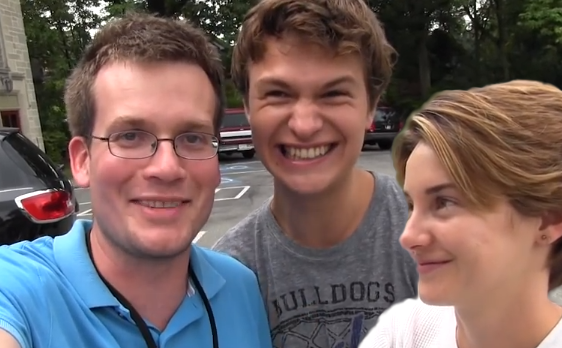According to cinemablend.com "Matt Damon will probably return as Jason Bourne."
| Matt Damon as Jason Bourne |
Are you kidding me?
Yeah let’s just bring Viggo Mortensen and the whole gang back for another The Lord of the Rings movie. Or why don't we just invite Clint Eastwood back for another "Dollars" western?
Just...no.
When I first heard the
news about Matt Damon potentially coming back for a fifth Bourne movie, I
thoroughly hoped it was a joke. No way he could actually agree to come back
after The Bourne Legacy. No way he could actually come forth as Jason Bourne
again. What is he gonna go on another treacherous journey and rediscover his identity all over again? Give me a
break.
The worst part? Paul
Greengrass is right there with him.
Like many trilogies before
it, The Bourne Trilogy is one that should never have been touched. Damon
escaped with his life (presumably) and found out who he really was in 2007, and
as viewers, we were just as satisfied as he was. That’s what the entire trilogy
led up to. It was finished.
But the first three films
grossed almost $1 billion worldwide, and so of course, it was touched. I was certainly
bummed about Jeremy Renner coming into the scene for The Bourne Legacy, but
eventually I got over it because Damon would always be the real Bourne. I could
say “Oh yeah the Bourne Legacy…that’s not a real Bourne movie.” It would always
be detached from the original trilogy.
But if Damon comes back
for another one, that argument is out the window.
Seven years ago, he walked
away from the franchise because he didn’t want to continue working without
Greengrass, who directed The Bourne Supremacy and The Bourne Ultimatum. That
was a good reason, but Greengrass’s was better: He was satisfied with the work
he’d done. And you know why he was satisfied with the work he’d done? Because
it was just that: done.
| Jason Bourne |
| not Jason Bourne |
It’s just like Christopher
Nolan and Christian Bale with The Dark Knight trilogy. They said before The
Dark Knight Rises that it’d be their last one together. They made a great
trilogy, and that was that. Now it’s Ben Affleck’s turn to disappoint people.
Can you imagine if they
came back in a few years and said they wanted to make another one? That’s what
Damon and Greengrass are doing, and you can’t help but wonder about their
standards.
I get it. Part of the
reason very well may be money. But do they really need money? Matt Damon is
worth $75 million for Pete’s sake. If I were him, I’d hate to think my
reputation as Jason Bourne could be altered. I’d hate to think that someone in
the future might say: “Ah yeah Matt Damon was great as Jason Bourne. I just
wish he never came back and did that fourth one.”
Or maybe it’s not money.
Maybe him and Greengrass just want to make another film together. Great.
Does it have to be another
Bourne?
They did Green Zone
together in 2010, and sure it didn't light up the Oscars or anything, but it was fairly successful. If
they’re looking for a fresh story, they need to make it as fresh as possible,
because there's just nothing left in the Bourne saga.
And you know what, that’s
okay. The Bourne Trilogy was unique because it was a well made, entertaining
series with a strong plot line. It wasn’t some clichéd revenge story or some
mindless action tale. It was about a guy trying to find himself, and you just don’t
see that every day.
| It's not too late to change your mind, guys |
So maybe they do come back
and make a fifth one. Maybe Damon teams up with Renner and they spark a brand
new adventure. Maybe they make another $200 million and everyone’s happy.
But if go to see a fifth Bourne film, it won't be for entertainment. It won't be because I miss Jason Bourne, or because I'm curious to see what Damon and Greengrass can come up with for the third time.
It'll be so I can come on here and rant some more about why it never should have been made.
-EE









